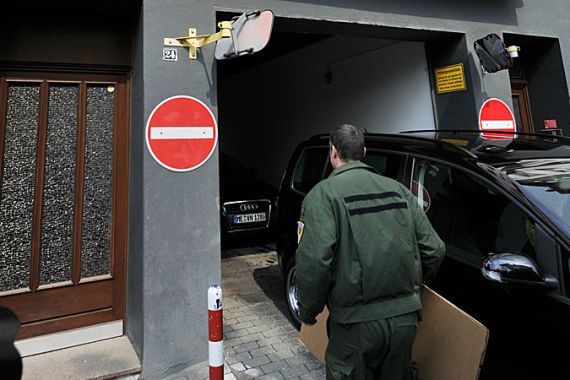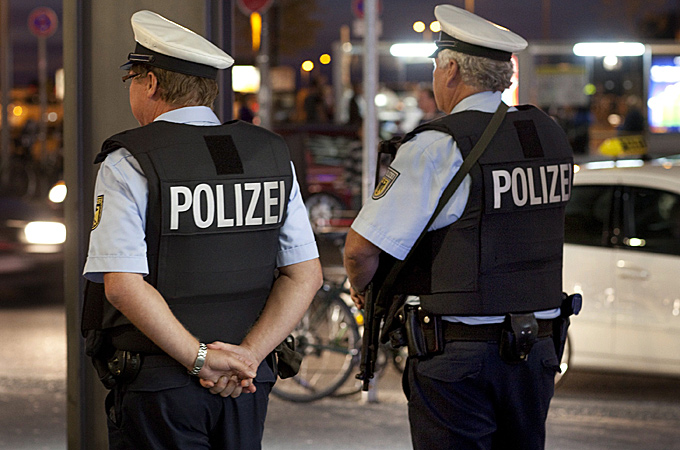Germany arrests suspected al-Qaeda trio
Police say three men of Moroccan origin detained in Duesseldorf and Bochum posed a “concrete and imminent danger”

 |
| The German government lowered the terrorism threat level in February [EPA] |
German police have arrested three suspected members of al-Qaeda who officials said posed a “concrete and imminent danger” to the nation.
Authorities did not say whether the three men, who were of Moroccan origin, had planned any specific attacks.
They said two of the men were arrested in the western city of Duesseldorf and one in nearby Bochum.
In a statement, Hans-Peter Friedrich, the German interior minister, said the arrests “succeeded in averting a concrete and imminent danger, presented by international terrorism”.
They showed “Germany remains a target of international terrorists,” he added.
There was no indication that Friday’s arrests had any link to Thursday’s bomb attack in Morocco that killed 15 people in a crowded tourist cafe.
Germany has escaped any large-scale attack by extremists, such as the Madrid train bombings of 2004 and the London transit attacks of 2005.
But the country’s presence as part of the NATO coalition in Afghanistan has sparked anger and at least two major plots have been thwarted or failed in Germany before they could be carried out.
The suspects had been under surveillance since November when Germany increased security across the country in response to heightened terrorism threat warnings in Europe, but authorities only had enough evidence to launch an official criminal investigation starting April 15, Friedrich said.
Federal prosecutors said earlier that they had ordered Germany’s federal police to arrest the trio, but gave no further information about the timing or location of the arrests.
Duesseldorf, a city of 600,000 people, has one of the largest Moroccan immigrant communities in Germany.
The German prosecutors said the three men would be brought before a judge on Saturday who will decide whether they are to remain in detention pending a trial.
Germany increased security in November after receiving information from its own and foreign intelligence services that led authorities to believe a sleeper cell of about 20 to 25 people may have been planning an attack inside the country or in another European nation.
Around the same time Germany also received information from US sources that an attack similar to that in Mumbai in November 2008 that killed 166 may have been planned for Germany.
Later, Germany received information on possible attacks at Christmas or New Year.
In February, the German government lowered the terrorism threat level and reduced the number of police officers patrolling railway stations and other public places, but made clear at the time that a threat to the country still remains.